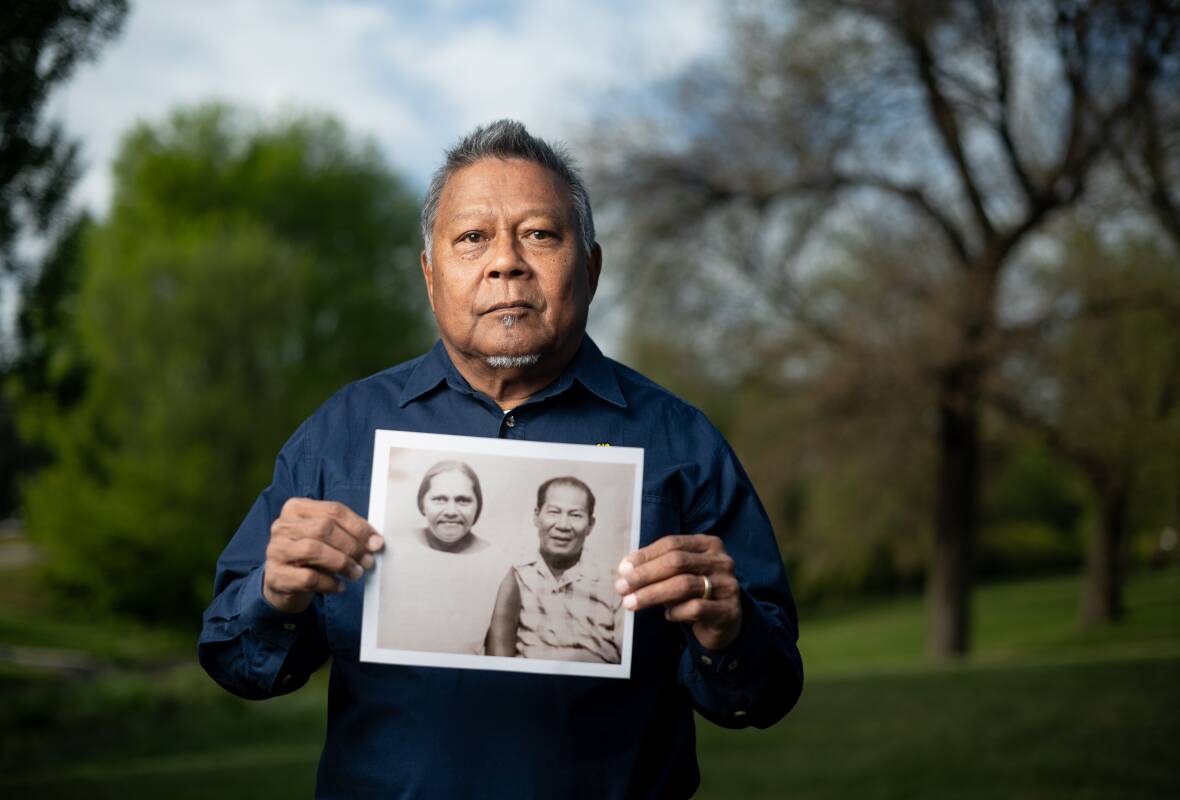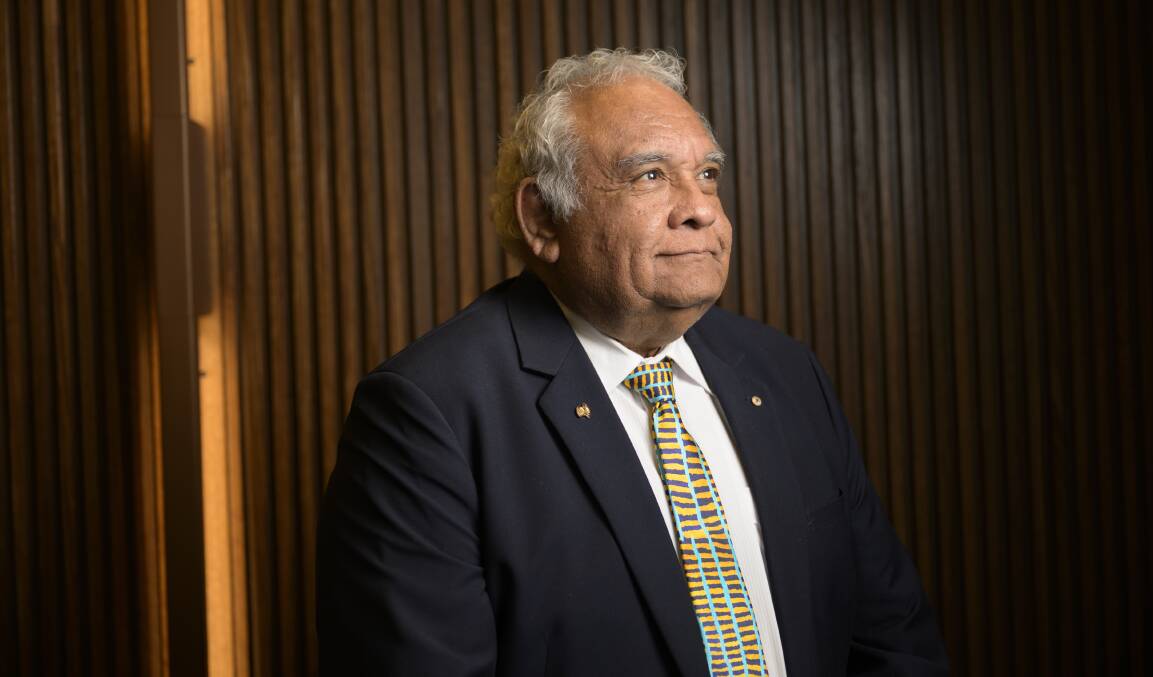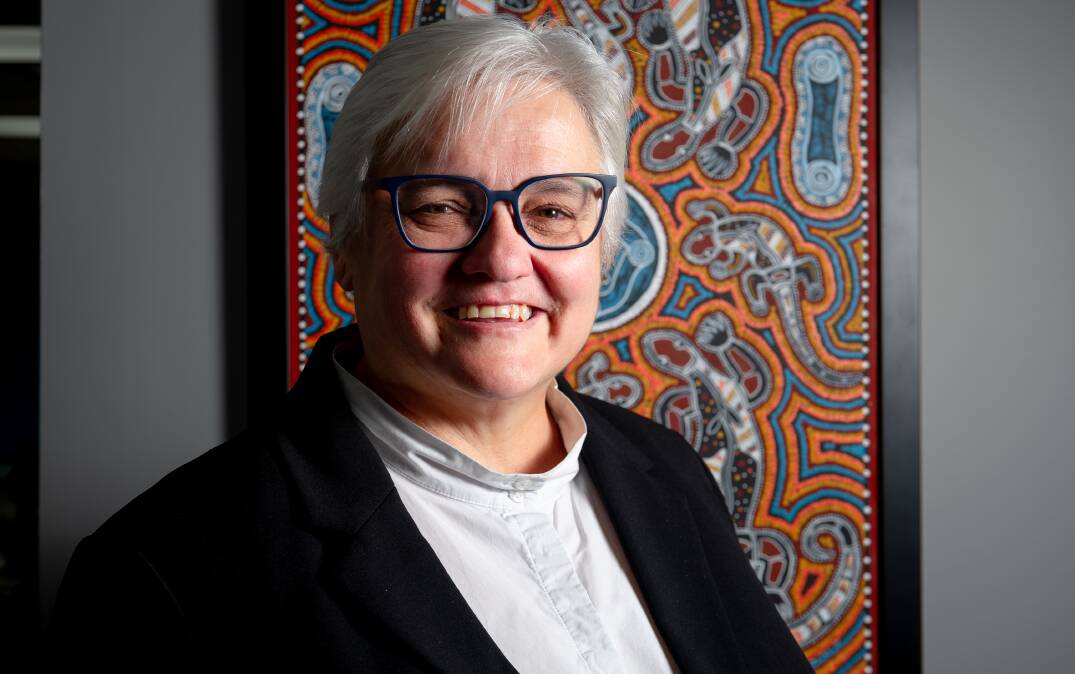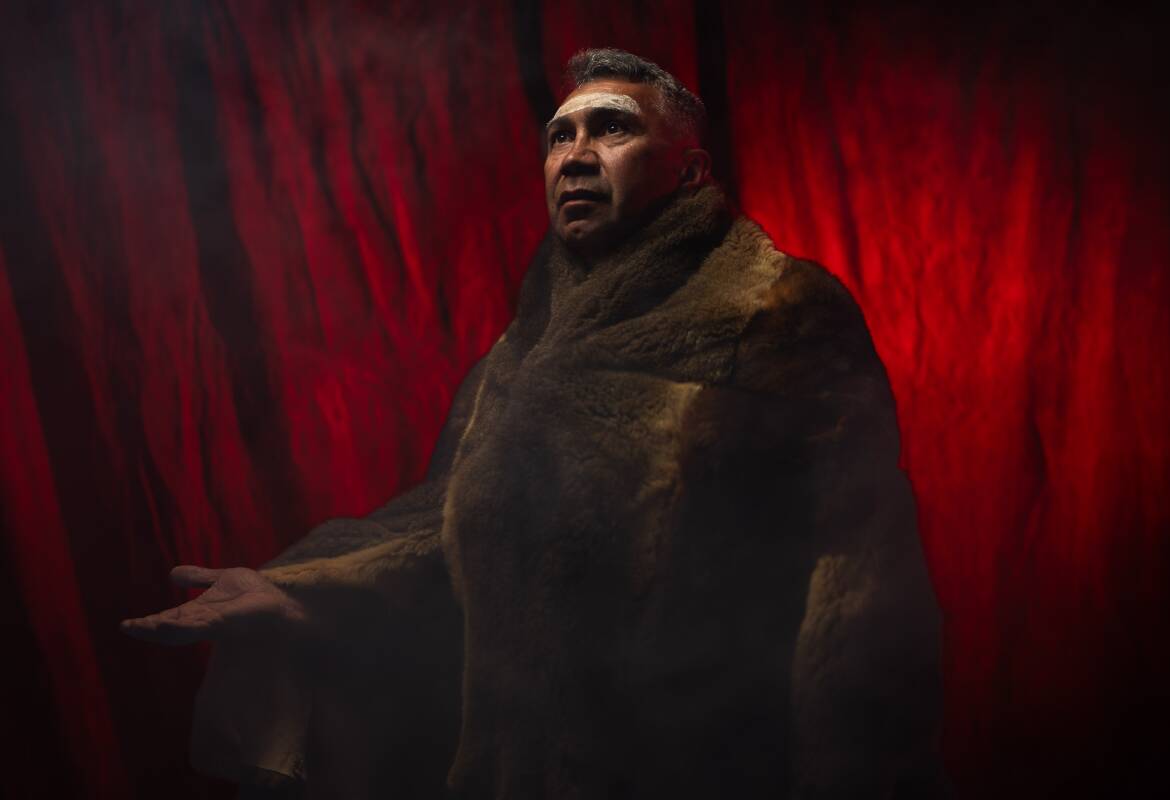The burning anger of Peter Yu over the pain his family suffered
The anger burns in Peter Yu as the referendum approaches. Just to talk to him about the injustices his people have suffered is to feel the heat of that anger. He talks quietly but the passion fills his office at the Australian National University.
His parents, as an indentured Chinese labourer and an Aboriginal woman, were forbidden from marrying until late in their loving relationship.
"My parents suffered the apartheid regime in this country. My mother was a maid, working as a domestic, controlled by her white employer. Her every movement was monitored," he said.
Until the 1960s, Indigenous Australians could only marry with government permission. So Margaret Dolby (as she was) and Yau Hung Tai only got married late (Peter Yu said that Yau became Yu as his surname because the clerk at the register got the name wrong).

In the previous generation of his family, his grandmother was taken away from her mother around 1910 - stolen from her. The mother of the stolen child followed the donkey cart in which the daughter was transported away for 450 to 500 weeping kilometres.
So for Professor Yu of the ANU, the referendum is personal. It touches him because of his own and his family's direct experience. He had a happy childhood with his parents in Broome but was then sent to a mission school to be "improved". He hated it.
It's wider than that, of course. For him, it's also about white Australia recognising a hurt. It's about acknowledging what happened, not just to his ancestors but to Aboriginal people in general. There is a great ignorance. "Australians don't know their own history," he said.
They don't recognise the hurt within Australia. "All my life we've been told we're no good, that we are failures," he said. "All our lives, we've had to experience rejection. We have to be twice as good as anyone else to be accepted in this community and society."
Professor Yu, a Yawuru man from the Kimberley region of north-west Australia, has spent much of his adult life promoting development for Aboriginal communities.
"I get very upset because I've been thinking that everything that I've been investing in for 40 years has been trying to get people to acknowledge what's going on. There's a rejection of who I am, or my mother and father's history, or of my grandparents, and a rejection of the future for my children."
So the referendum is a big deal. "It's a big deal because there's a sense of expectancy that we are arriving at a destination point of the last 200 years or so, where there would be some final recognition and acknowledgment of who we are and what makes us distinct as the first peoples of this country."
There is, he thinks, a more basic and blunter reason for white people to vote "yes": better value for tax-payers' money. Government spending has failed to close the gap between Indigenous people and descendants of immigrants on a raft of issues, particularly health.
Aboriginal input into decision-making, he argues, would get a better result than, as he puts it, what the government has been "pissing up against a wall".
He does not see a Voice to Parliament as a solution but as a step in the right direction. "It's not a panacea - not a silver bullet - but I believe it will bring a level of confidence that the country is starting to prepare itself about more deeper issues like truth-telling," he said.
Apart from truth-telling, he thinks economic development of Aboriginal communities (some of which are on land rich in minerals) is also high on the agenda.
He said that the big difference between this referendum and the one on same-sex marriage is that most people don't know an Aboriginal person but many did know a gay person. The difference may determine the different outcomes.
And if the vote is a "no"? "Disappointment, sadness and rejection would be my feeling."
"I think it would make a mockery of the fact that we've signed covenants and agreements purporting to demonstrate our bona fides as a modern, progressive, multicultural, egalitarian society.
"It would expose us as the hypocrites that we are."
The unbeatable optimism of Tom Calma

The Chancellor of the University of Canberra Tom Calma is optimistic about a "yes" vote on Saturday. "I think it'll get over the line," he said.
Even as the polls predict victory for the nay-sayers, he still shines with the hope that his "yes" side will get there.
So strong is the optimism that he hasn't really contemplated defeat. "I haven't spent much time considering that it will go down," he said. "All the anecdotal feedback that I'm getting contradicts the polls."
His honours are legion, including Officer of the Order of Australia and current Senior Australian of the Year.
He outlines his reasons to put "yes" in the box. One of the most compelling may be that a Voice to Parliament would see tax-payers' money better spent.
He cites a string of cases where he says Indigenous communities have had a big input into how programs affecting them should operate on the ground.
To take one example, a scheme in Bourke called Just Reinvest led to a large drop in the incarceration of Indigenous people.
The KPMG accountancy firm calculated that the savings generated in 2017 by reducing crime and not jailing so many people added up to $3.1 million.
"Bourke was the epicentre of youth crime and that is no longer the case," Professor Calma said. The scheme has now expanded to other towns across the country.
His pitch, accordingly, is that the advisory role of the Voice would benefit tax-payers and citizens in general.
"We've seen greater participation in health programs, education program and employment. You invest in the community and that saves money and that keeps many out of jail or youth detention centres which is costing hundreds of thousands per person.
"The Voice will mean that Aboriginal and Torres Strait Islander Peoples will be advising Government when, or hopefully before, decisions are made about laws and policies impacting Aboriginal and Torres Strait Islander Australians."
That, he believes, is a practical reason to vote "yes". The Voice to Parliament would advise parliament and that advice, he argues, would benefit the country as a whole.
There are also the broader reasons, like justice and national reconciliation.
"It will heal our nation and lead to better policies and practical outcomes as First Nations people know what Government needs to do when it comes to things like education, health, housing, management of country and family violence."
He is at pains to address claims made by "no" campaigners, like the one that a Voice would divide Australians.
"This is not about race politics or dividing Australia. It is about uniting Australia and making our nation stronger."
Katrina Fanning: Lessons from the pandemic for the Voice vote

The Indigenous campaigner Katrina Fanning thinks there are lessons from the pandemic for voters in Saturday's referendum.
Unusually, Indigenous people were closely involved in the way the coronavirus was combatted in their communities. Opinions were sought and advice implemented - and the result was better outcomes than many had dared hope for.
So the lesson for the Wiradjuri woman who is an Officer of the Order of Australia is that taking advice from the people on the ground secures better results.
"Look at the remarkable outcomes during COVID because Indigenous health services and leaders where at the table from the start ensuring the needs of Indigenous Australians were part of the decision making process every step of the way," she said.
That positive experience has fired up enthusiasm for the Voice in those communities. A lesson was learned, she believes.
"I travelled across Australia and was part of the Voice Co-design discussions with Indigenous people in cities, in the regions and in remote locations. I heard clearly the overwhelming support to elect the people to speak on the issues that affect them."
She thinks this ought to resonate beyond Indigenous communities.
The gap between Aboriginal and Torres Strait Islanders, on the one hand, and Australians in general, on the other, on a raft of measures of health and well-being, including life-expectancy, is stark and well-documented.
Katrina Fanning thinks a Voice to Parliament would help close that gap and bring the country nearer an equality of outcome.
"If we truly want a united Australia, then surely that means we want a country where any child born today has the same expectations for their health, education and employment across their life. This is not the case right now and all the evidence tells us better results are delivered when the people affected are directly involved in the solutions.
"For most Australians the most the Voice will cost them is the time it takes to cast your vote. For Indigenous Australians the costs will be counted in life years.
"'Yes' makes a better future possible for all of us!"
Paul Girrawah House: 'Respect' and 'recognition'

"Respect" and "recognition" are the words which keep recurring when you talk to Paul Girrawah House.
"'Yes' is about respect - respect for our culture and our identity," the Ngambri-Kamberri elder said. "How can we live in this country without being formally recognised?
"We don't have a formal role in decision-making in this country. A 'yes' vote would help give us a seat at the table."
For him, the "yes" vote which he promotes in his frequent welcomes-to-country is about getting the respect and recognition which has been denied his people since the British colonists arrived on the First Fleet in 1788.
"It's time to stop the rejection of our people. We must move forward in order to have our rightful place in this country."
It's also about the full truth of Australian history which he feels too many white people simply don't know or understand. Or as he puts it: "It's like play-school 101 educating some white folks about the history of this country."
That barely-understood history is both national and local - the fact, for example, that the name Canberra comes from the Kamberri people who inhabited this land for the millennia before white people came and constructed a city.
"'Yes' is about coming to terms with the historical truth of this city and this country," the Ngunnawal custodian said.
"Under the concrete and steel of our cities and country towns there's a rich and compelling and powerful Indigenous story which is a shared story which belongs to all of us," he said.
As he speaks, he wears the possum-skin cloak made by his mother out of 25 possum skins (imported from New Zealand, he says, because possums there are viewed as a pest).
The cloak is a signal of respect for "the oldest living culture in the world".
"We are modern Aboriginal people but we carry the past," he said.
He says he would not be derailed by a "no" vote. "We'll keep fighting for our rights and recognition until we win the battle.
"I've still got fire in my belly, whatever the outcome."







